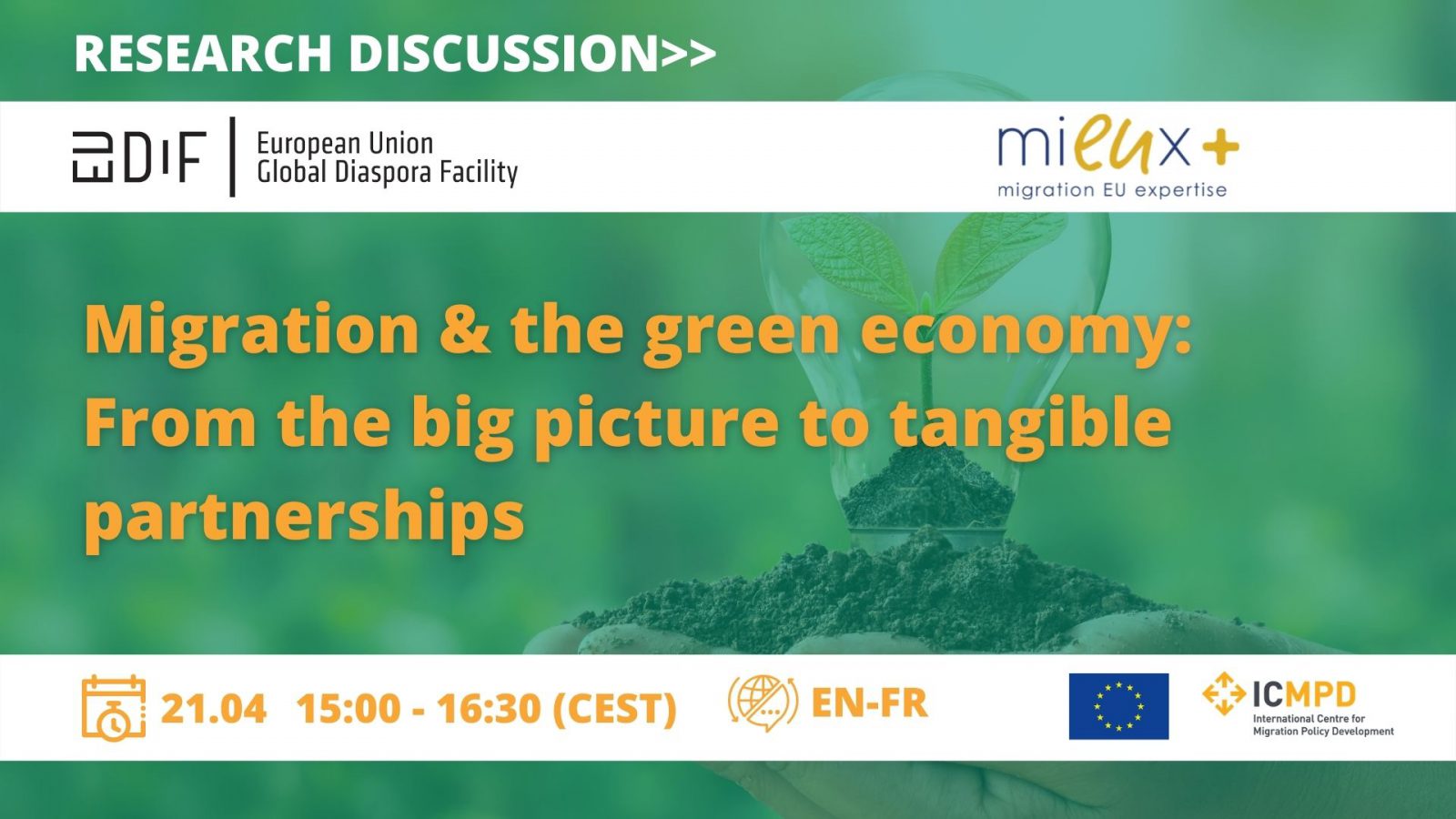
What are the frameworks needed to incentivise and support green innovation led by migrants and how can migrants play an active role in the green transformation? On 21 April EUDiF and MIEUX+ host an online discussion exploring the relationship between migration and the green economy, with a special focus on concrete diaspora-engagement action.
The migration & the green economy intersection
Climate change and environmental degradation present an existential global threat. Enter the the European Green Deal as Europe’s green transformation strategy to tackle these challenges and drive growth whilst becoming climate neutral. The EU aims to stimulate the economy through green technology and sustainable industry, whilst cutting pollution. It strives to turn environmental challenges into inclusive and fair opportunities for all.
Green-centred policy frameworks, such as the European Green Deal and the 2015 Paris Agreement are the policy foundations for climate neutrality and a thriving green economy. But a whole-of-society approach with multiform collaboration and dialogue is necessary to rapidly build on those foundations and create resilience to environmental degradation and innovate solutions that will accelerate the green transition.
Migration is known as a driver of development, entrepreneurship and innovation and therefore it is vital to proactively include people with migration experience in the green transition. Inspired by the multifaceted potential of the intersection between migration and green transitions, EUDiF and MIgration EU eXpertise (MIEUX+) have undertaken complementary research projects to explore this potential, from the policy level to burgeoning practices, many of which are diaspora-driven. EUDiF’s research project was launched during the Future Forum 2021, on the day dedicated to mainstreaming diaspora engagement in green transitions around the world.
Exploratory research & results
The MIEUX+ discussion paper analyses major trends and key discussions surrounding the Green Deal, 2030 Agenda and possible linkages to labour mobility whilst our EUDiF research study delves into the varied ways in which diasporas engage in the green economy, with examples in the waste management and renewable energies sectors from three countries: Haiti, Togo and Vietnam.
Before the research papers are published, on 21 April, we will co-host a results discussion with MIEUX+ for a first glimpse of what we have learnt: the entry points for migrants and diasporas in the green economy and what is required to enhance this potential in both Europe and its partner countries.
The webinar will take place 15:00-16:30 (CEST) with interpretation in English and French.
Speakers
- Dr. Stephen Adaawen, Assistant Professor, University of Groningen (Netherlands) and Associate Researcher, German Development Institute (Bonn, Germany)
- Diana Stefanescu, Project Specialist – Labour Migration, Migration Partnership Facility
- Guillaume Quelin, Climate change project officer, GRET
- Placide Dougah, Founder, Valora Solutions et Services Environnement